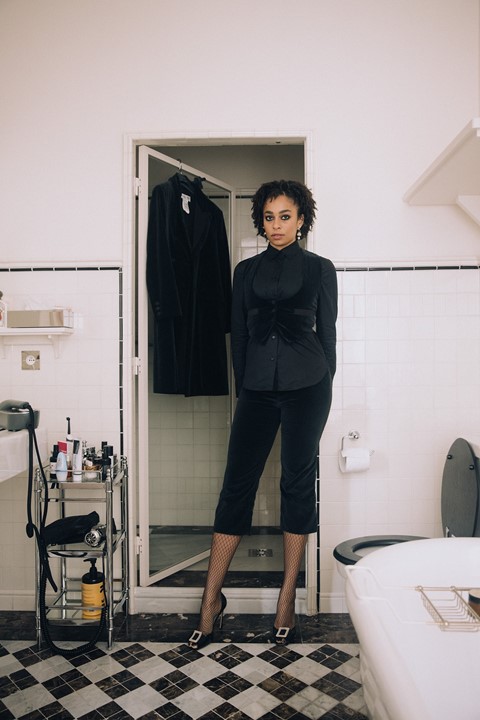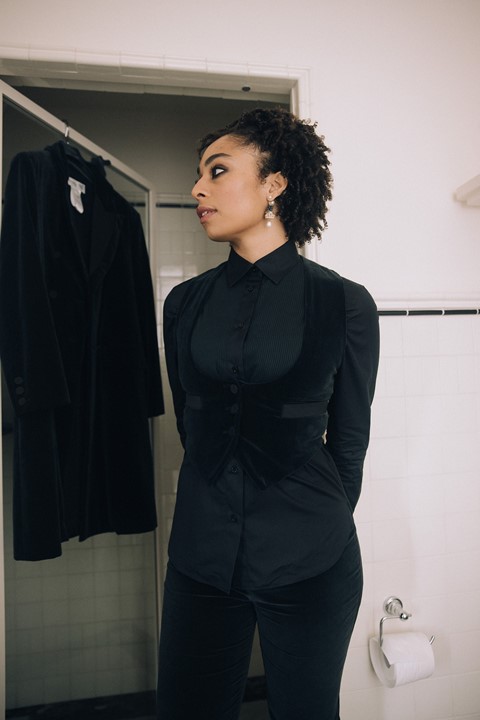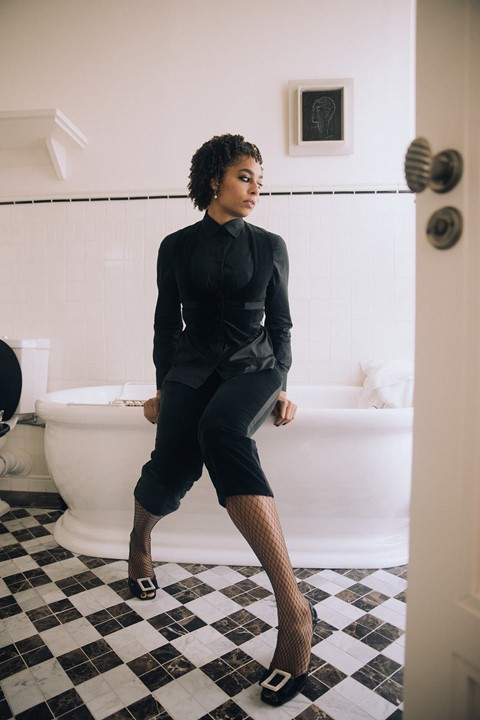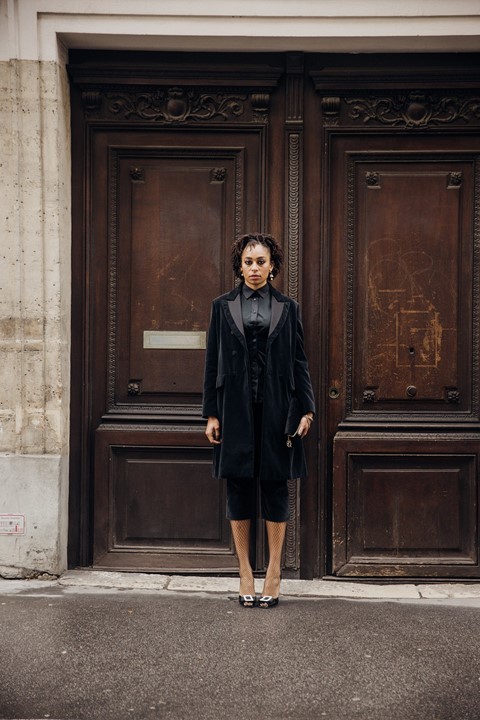Fashion’s favourite musician talks about attending Maria Grazia Chiuri’s theatrical Dior show, touring over summer, and going into hermit mode for her second album
On Tuesday earlier this week in Paris, Maria Grazia Chiuri put on an awe-inspiring spectacle for the Dior Spring/Summer 2023 womenswear show. To the thumping noises of Björk’s new single Atopos, models walked around a Baroque-inspired, labyrinthine cardboard cave (created by French artist Eva Jospin) in a series of looks inspired by Catherine de Medici, an Italian noblewoman who later became the Queen of France in 1547. This was a collection about women and power, or women in power – and the way in which clothes can channel a sense of authority.
“It’s always interesting to analyse the way people react to each other and the garments in this environment,” says singer-songwriter Celeste, who attended the Dior show, and has been a front row staple this season for brands including Simone Rocha and Acne Studios. “In a way, the occasion and the human behaviour becomes as much of a spectacle as the art of fashion is,” she says thoughtfully.

“The cave-like structure in the middle of the catwalk had a feminal and womb-like appeal,“ she continues. “It suggested an abundant passage into an ancient world and from there the models emerged.” Aside from the setup, Celeste’s favourite piece from the show was a pair of knee-high black boots “somewhat reminiscent of 1980s punk”, which she says are as seductive as images in John Willie’s 20th century bondage and fetish magazine Bizarre.
Celeste knows a thing or two about women and power, and the ways in which they can intersect. After a string of poignant singles – like 2019’s Father’s Son, which explored her complex relationship with her father, who passed away when she was 16 – Celeste was hailed by many as the generational voice of modern jazz, praised in particular for her emotive live performances. After winning the Brit’s Rising Star award in 2020, a year later she released her debut, Mercury-nominated album Not Your Muse, a gutsy meditation on love and heartbreak.

“Music is such a fundamental part of having a voice in society,” Celeste told AnOther last year. “Whenever there’s been a group of people in society that have been marginalised or had prejudice against them, they have used music to express their experience in a way that people can understand.”
After a summer spent touring through Europe and performances at the Philharmonie Paris and Montreux Jazz festival (at Glastonbury earlier this summer, she wore a striking all-white bespoke look by London-based brand Parabola Works), Celeste is now back in the studio writing her second album. Inspiration-wise, she has been drawing on a wealth of influences; from Nina Simone to Zimbabwean poet Dambudzo Merechera – “I want to further understand the experience of young Black intellects and artists in times before ours” – and also the work of Jamaican ballerina Berto Pasuka. Speaking on the songwriting process, she is steadfast in her dedication to the craft. “It requires me to be quite sensitive and receptive to my surroundings and also somewhat hermit,” she says. “But then the music begins to come together and you feel you are where you are meant to be.”

